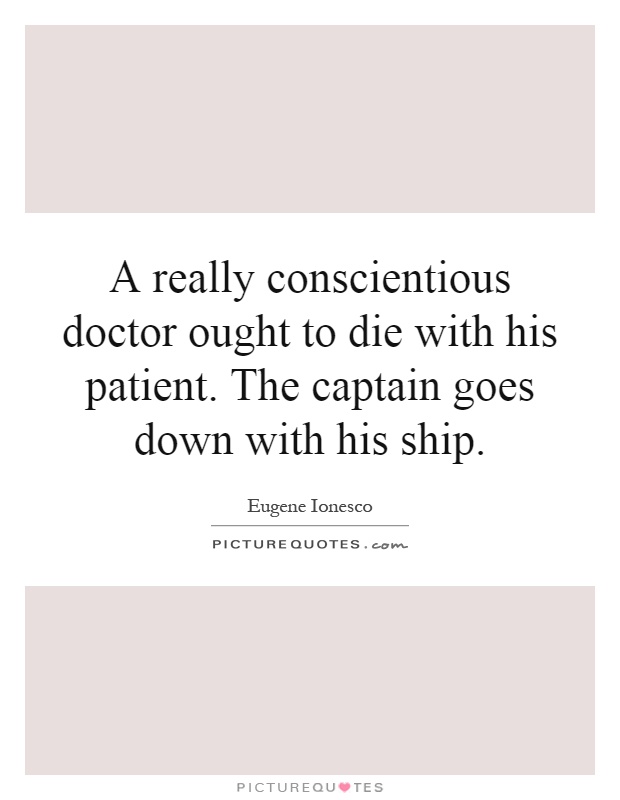A really conscientious doctor ought to die with his patient. The captain goes down with his ship

A really conscientious doctor ought to die with his patient. The captain goes down with his ship
Eugene Ionesco, a renowned playwright known for his absurdist and existentialist works, often explored themes of mortality, identity, and the human condition in his plays. In the context of the quote "A really conscientious doctor ought to die with his patient. The captain goes down with his ship," one can see how Ionesco's philosophy on life and death may have influenced his writing.The idea that a doctor should die with their patient speaks to the ultimate sacrifice and dedication that a truly conscientious healthcare provider should possess. In Ionesco's world, where characters often grapple with the absurdity and meaninglessness of existence, this notion of selflessness and solidarity in the face of death is both noble and tragic. It suggests a deep sense of empathy and connection between the doctor and their patient, transcending the boundaries of life and death.
Similarly, the comparison to a captain going down with their ship evokes a sense of duty, honor, and responsibility. Just as a captain is expected to stay with their vessel until the very end, a doctor should be willing to stand by their patient through thick and thin, even if it means facing death together. This idea of loyalty and commitment to one's role is a recurring theme in Ionesco's works, where characters often struggle to find meaning and purpose in a chaotic and unpredictable world.












 Friendship Quotes
Friendship Quotes Love Quotes
Love Quotes Life Quotes
Life Quotes Funny Quotes
Funny Quotes Motivational Quotes
Motivational Quotes Inspirational Quotes
Inspirational Quotes